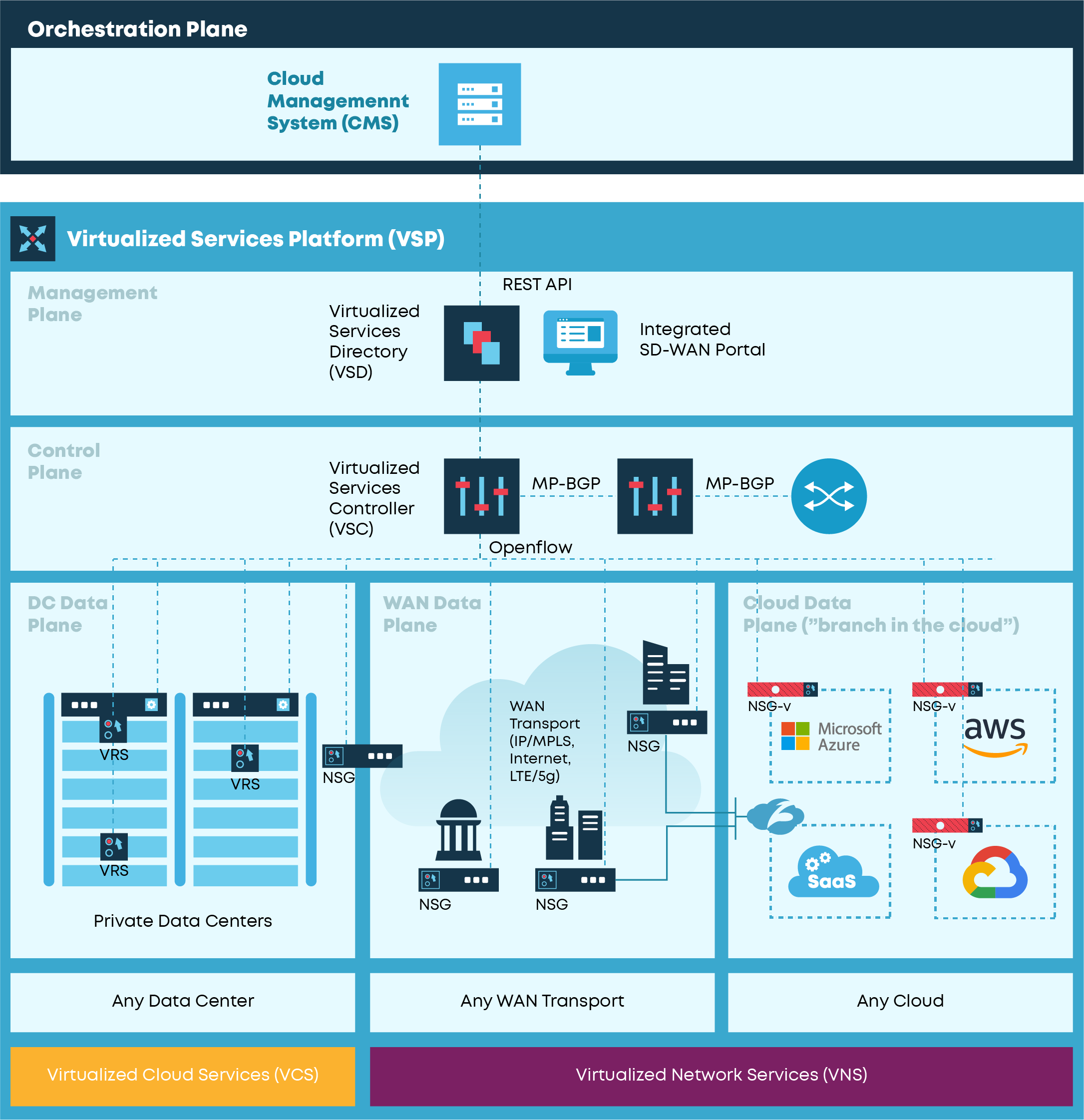多云挑战
业务应用和工作负载变化,网络边界扩展,需端到端的 SD-WAN 解决方案和多云策略。


业务应用和工作负载变化,网络边界扩展,需端到端的 SD-WAN 解决方案和多云策略。

云自动化时代扩展需求巨大,需要为大规模构建的 SD-WAN 解决方案。

云架构时代传统安全措施不足,需新的软件定义安全措施。

专用分支设备蔓延难管理,企业转向以 VNF 形式托管,需能安全管理连接的 SD-WAN 方案

企业需通过通用框架接纳更多远程工作者和移动用户。


由 FirstLink 虚拟化服务平台(VSP)所支持的数据中心和云网络框架,能够使通信服务提供商(CSP)及其电信云部署,以及大型企业数据中心客户实现虚拟网络的自动化配置、管理和优化。它包括为租户隔离以及对单个应用和工作负载的访问控制提供安全服务。
VCS 是针对所有虚拟化和非虚拟化服务器及网络资源的非破坏性软件定义网络(SDN)覆盖。它对底层物理基础设施呈透明状态,并提供一个无需专门硬件的完整云网络框架。VCS 可以部署在包括 Docker 容器、多管理程序虚拟机(VM)或裸金属服务器在内的任何混合环境中。
通过支持开源产品和工具以及任何混合环境(容器、VM 和裸金属)减少集成和兼容性问题。
在整个云中以智能、一致和可证明的方式应用精细的安全策略。

以满足 5G 和物联网即将到来的大规模需求以及低延迟要求。

通过对网络的各个方面进行自动化和优化,让网络如同计算资源本身一样具有动态性。


FirstLink Virtualized Service Platform (VSP) is the common platform where both Virtualized Cloud Services (VCS) and Virtualized Network Services (VNS) are offered. VCS is FirstLink data center SDN solution. VNS is Nuage Network’s SD-WAN 2.0 solution.

The Network Services Gateway (NSG) constitutes the network-forwarding plane for VNS. The NSG encapsulates data traffic, enforcing Layer 2 to Layer 4 network policies as well as establishing Layer 2 or Layer 3 overlay VPNs as defined by the VSD. The NSG family also supports built-in Wi-Fi access as well as LTE uplink as well as other inherent built-in advanced services.

The Virtualized Services Directory (VSD) is a programmable policy and analytics engine. It provides a flexible network policy framework that enables network administration teams to define, apply, and enforce business policies across the network service in a user-friendly manner. The VSD also offers a multi-tenant enterprise portal that enterprise customers can use to visualize, configure, maintain their network.

The NSG–v is the virtualized software image of the VSG and can be deployed in any x86-based virtualized environment and is the software that is deployed in public clouds to extend SD-WAN 2.0 visibility and control.

The Virtualized Services Controller (VSC) is the industry’s most powerful SDN controller. It functions as a centralized and robust network control plane for the network services, maintaining a full view of the network and service topologies. Through the VSC, virtual routing and switching constructs are established to program the network-forwarding plane.

Virtual Routing & Switching (VRS) is a software agent that resides in a virtualized server environment of a data center that serves as a virtual endpoint for network services. Through the VRS, changes in the compute environment are immediately detected, triggering instantaneous policy-based responses in network connectivity to meet the needs of applications.